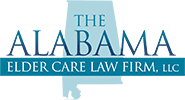
Any care plan should take a close look at advance directives. As your family sits down to discuss what your mom would and wouldn’t like in terms of care and aging, talk about estate planning measures like advance directives, too.
What Goes Into an Advance Directive?
With an advance directive, your mom sets forth the types of care she wants in different situations. She also determines where she’d want care if something happened. If she had a stroke, would she want to be cared for in her home with the help of home health nurses and therapists or in a nursing home where all of the staff she needs is there. If she was diagnosed with Alzheimer’s and stopped eating, would she want a feeding tube?
Would your mom want to be on life support if she had no hope of recovery? If any of her organs were viable, would she want to donate them to someone in need? All of these decisions are covered in an advance directive.
If your mom would want certain people contacted by the doctors before a treatment like feeding tubes or ventilators are used, she could name them in a contact list that doctors must follow. She doesn’t have to worry about others making decisions for her if she’s able to communicate through blinks, a thumbs-up sign, a nod, or verbal consent.
The other aspect of an advance directive is the choice of who she’d want to make health care decisions for her if she became incapacitated. Would she want you to make her choices or another adult child? Would she rather not have family making that choice and ask her best friend to do it? In the advance directive, she would name her choice or choices for a health care proxy or agent.
Terminology Used in an Advance Directive
There are three key terms used in an advance directive that are important to understand as care decisions for each area are covered. Terminally ill or injured is one. Decisions regarding how your mom would want to be treated if she had a terminal illness are covered in this section.
Permanent unconsciousness is the next. It’s based on the best medical opinion that the patient cannot think, feel, move, or be aware of his/her state of being.
Life-sustaining treatments go over your mom’s wishes for machines meant to keep her alive when there is no hope for survival. The machines keep her alive even though her medical condition or illness is incurable. It does not keep your mom from getting medications to keep her from feeling pain and discomfort.
While there are DIY forms for advance directives, an expert in elder law can draft documents that follow the current laws. This protects your mom from having a medical professional or court argue the validity of the advance directive she’s created. Call an elder law attorney to schedule a consultation.
If you or a loved one need assistance with Elder Law in Birmingham, AL contact Nolan Elder Law & Estate Planning today. (205) 390-0101
